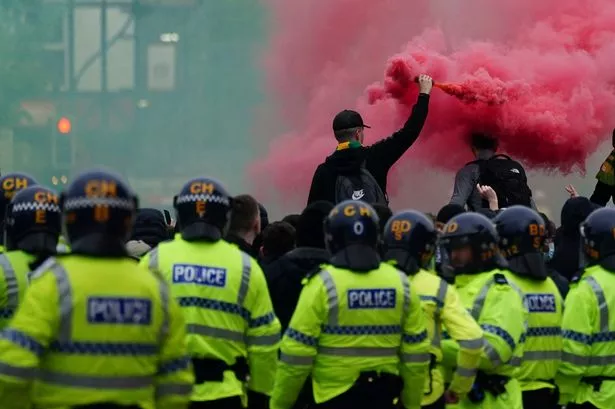Violent Disorder
When facing allegations related to violent disorder, understanding the nuances of the law and available defense strategies is crucial. In this guide, we delve into the legal aspects surrounding violent disorder charges, offering insights and guidance to help you navigate through the complexities of the legal process.
Request A Free Consultation
What is Violent Disorder?
Violent Disorder is a crime described in section 2 of the Public Order Act 1986. It refers to serious misconduct involving multiple people in a public or private setting.
To qualify as violent disorder, the prosecution must prove that three or more people were involved in acts that used or threatened unlawful violence. Everyone had to be in the same place at the same time, and the activity had to be severe enough for a “person of reasonable firmness” at the scene to fear for their safety.
Examples of violent disorder include:-
- Football hooliganism: Gathering with fans outside the match to throw missiles, rocks and other items at opposing fans: turning normal hostility into a violent clash involving physical fighting with multiple people.
- Violent protest: Engaging in a demonstration that is initially peaceful but becomes violent: damaging property, setting fire to buildings, and throwing projectiles at police, opposing protestors, or the general public.
- Street gang confrontations: Fighting a rival street gang in a neighbourhood where verbal exchanges descend into physical violence using weapons, causing significant bodily harm.
- Mass vandalism: Working with a group of people to deliberately destroy property, smash windows, and overturn vehicles.
- Nightclub brawls: Fighting alongside others against another group of patrons: throwing punches, or using glass bottles as weapons to injure other people in a melee.
These are just some common examples of events that UK courts might deem “violent disorder.” However, there are many more.
Fundamentally, violent disorder occurs when a group of people come together to cause harm that threatens, damages, or injures other people and their property and would cause a “person of reasonable firmness” to fear for their safety. Courts will investigate the specific circumstances of each case to decide whether the law applies or if other charges would be more suitable.


Violent Disorder Sentencing Guidelines
Violent disorder sentencing guidelines are set by the Sentencing Council for England and Wales. (Different rules apply to Scotland). The severity of the sentencing usually reflects the seriousness of the offence. Courts will consider the level of violence and threat involved, with the most serious attracting the highest penalties.
Courts will also assess the role and involvement of each individual charged with the crime. If you only played a minor part, your sentence may be less.
Finally, courts will consider the interplay of aggravating and mitigating factors. The former includes using weapons, premeditation, and previous convictions, while the latter entails demonstrating remorse and cooperating with authorities.
If found guilty of violent disorder, judges (or sometimes magistrates) may sentence you to:-
- Unpaid work via a community order
- A suspended sentence that requires you to comply with certain conditions
- Immediate custody and a prison sentence
- A custodial sentence for under-18s that might include rehabilitation and counselling
As such, being accused of violent disorder is a serious charge. Therefore, always work with a reputable solicitor to defend your case.


